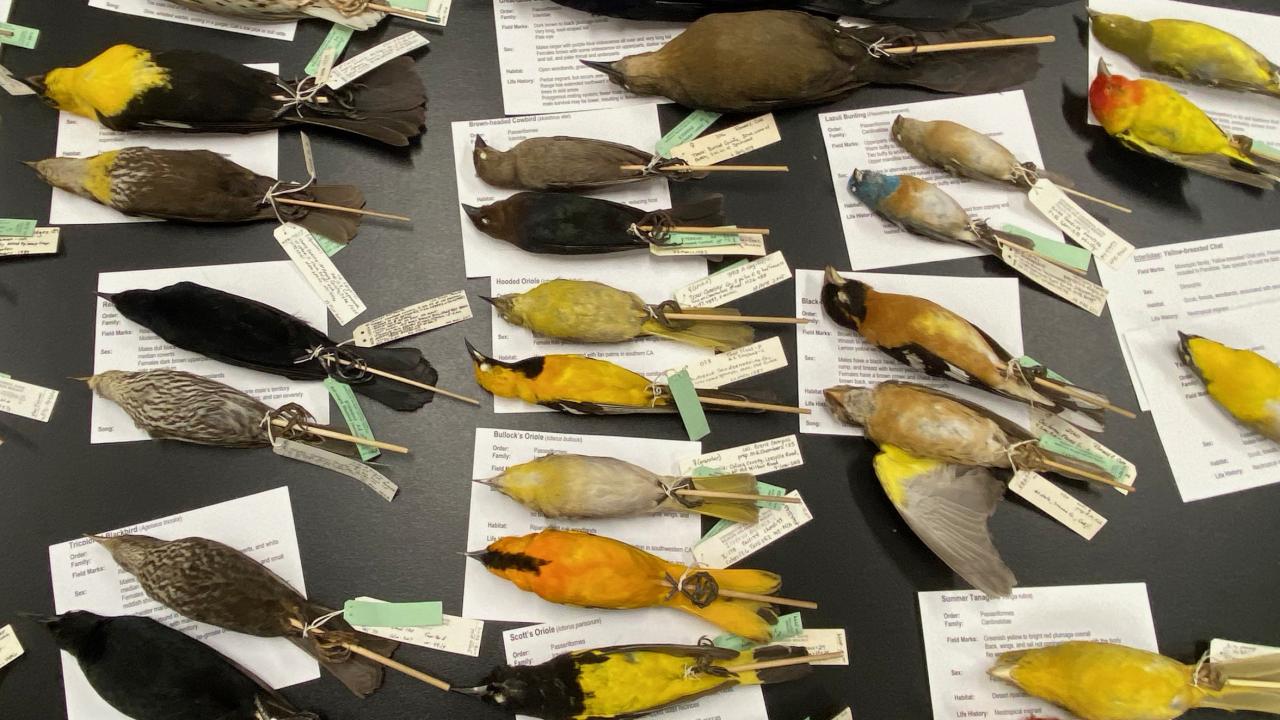I was a plant girl. As an undergraduate student at UC Davis, I’ve spent my summers restoring wetlands with native plants, summiting peaks to study alpine cushion plants, and dissecting seeds in labs. Animals were never in the picture, and birds were no exception. So when I kept seeing “Bird ID skills needed” on botany position advertisements, I knew my plant-only class days were over.
Enter “Laboratory in Biology & Conservation of Wild Birds, (WFC 111L).” The course is led by this year’s UC Davis Teaching Prize winner, Professor John Eadie in the Department of Wildlife, Fish and Conservation Biology. What a whirlwind.
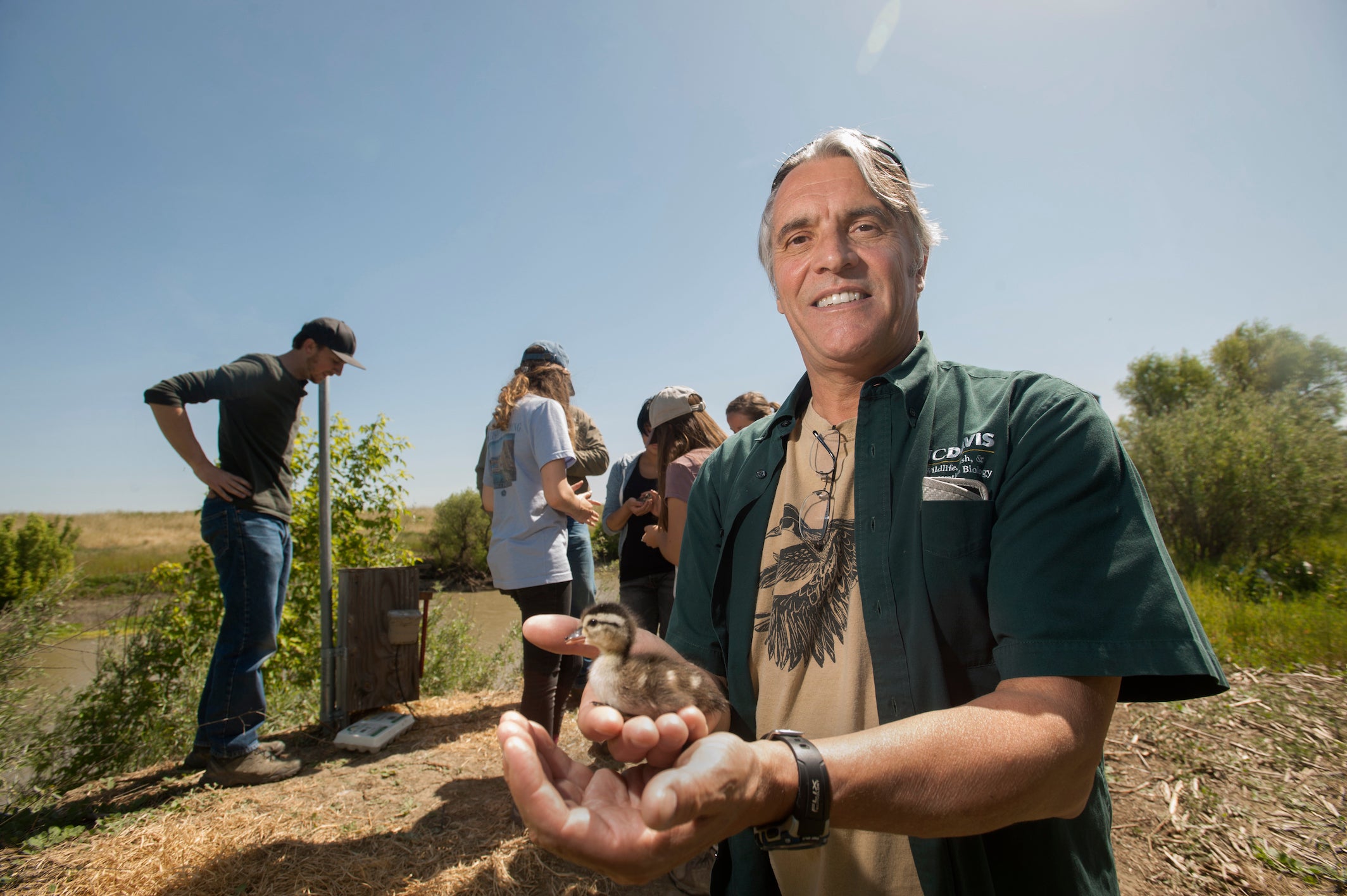
John Eadie Wins UC Davis Teaching Prize
Prize money donated to establish diversity in wildlife and waterfowl biology scholarship.
Every Tuesday and Thursday at 3 p.m., I pushed open the massive doors of the UC Davis Museum of Wildlife and Fish Biology and was greeted by 30 perfectly preserved bird specimens. Sometimes there were hummingbirds –– tiny as my pinky finger, heads shifting from black to shimmering magenta as I turned them. Sometimes there were diving ducks that took two hands to hold, their shiny feathers caressing my palms. Other times, there were massive eagles and swans that no one dared to pick up.
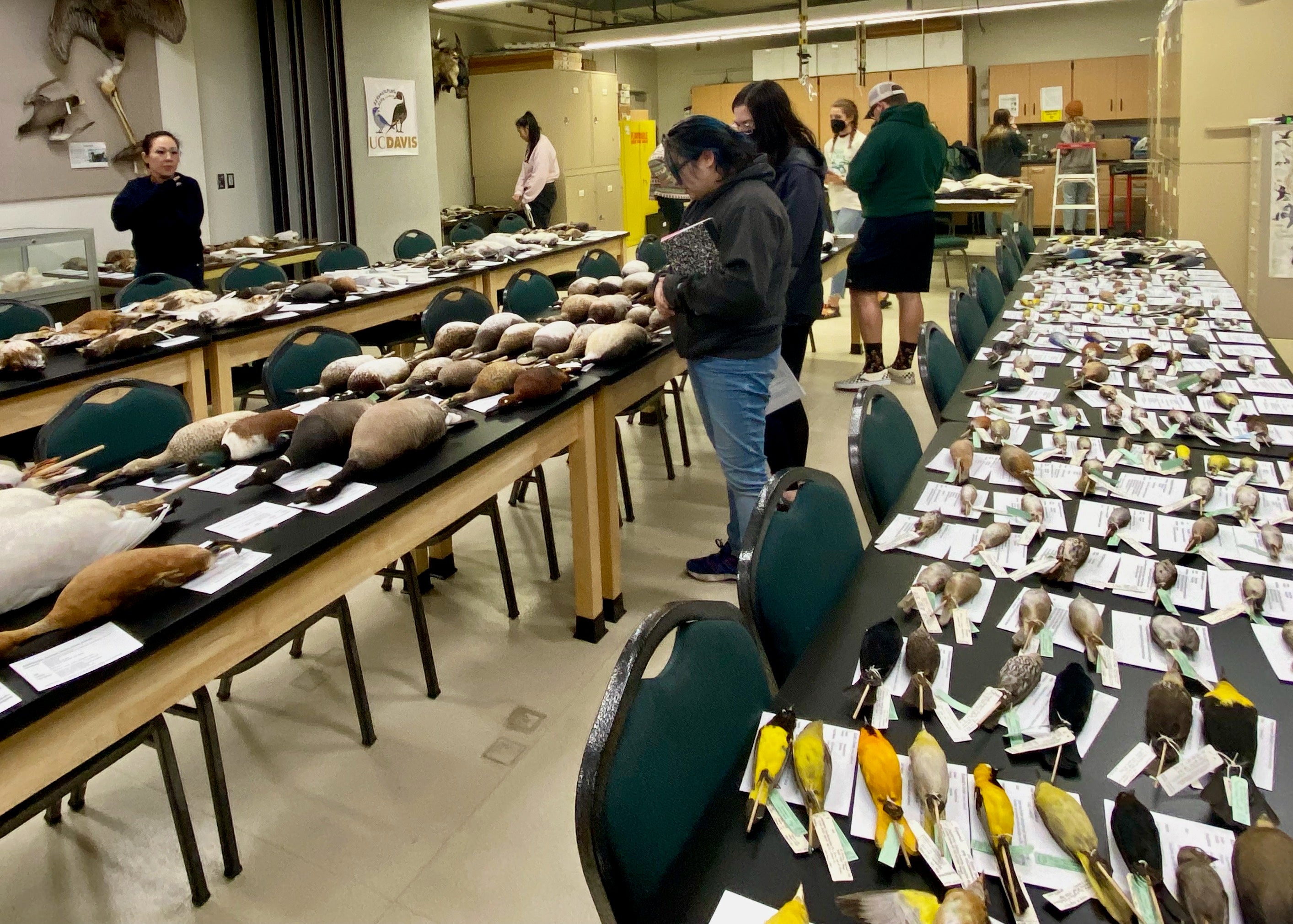
I walked the aisles of the classroom with my fellow bird nerds, jotting down distinguishing traits, snapping pictures from every angle, and attempting to memorize them before we had to learn the next set of 30 birds in two days. Some students made flashcards or side-by-side photo comparisons. Others twirled the stick-mounted birds in their hand, associating each name with the look and feel.
After two hours, we sat down for a slide presentation about each bird and its ecology, call, and family/order relationships. The incredible teaching assistant, Dan Smith, an Avian Sciences Graduate Group student who has taught the class since 2013, would lead a short bird walk in the arboretum if we had time.
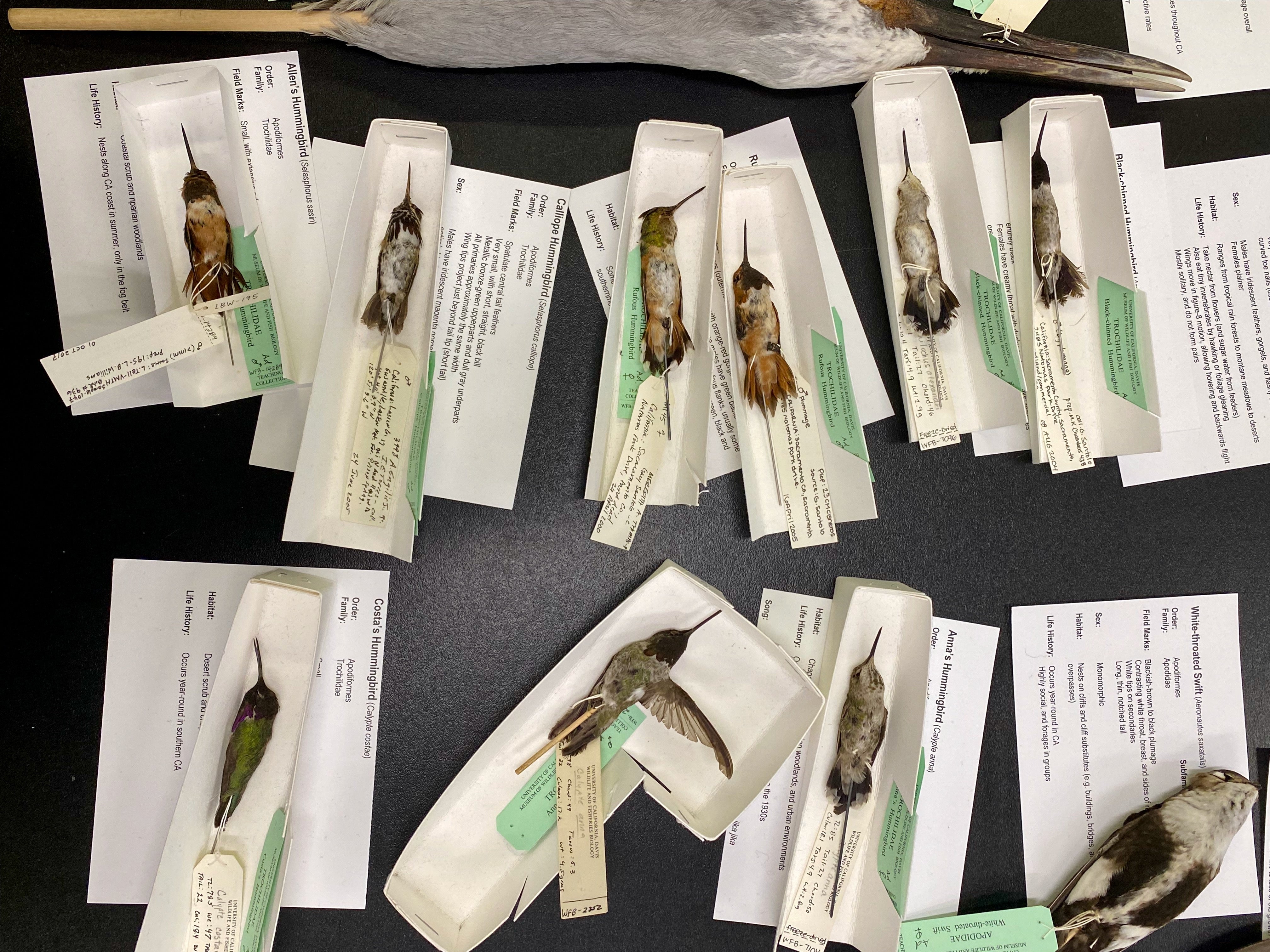
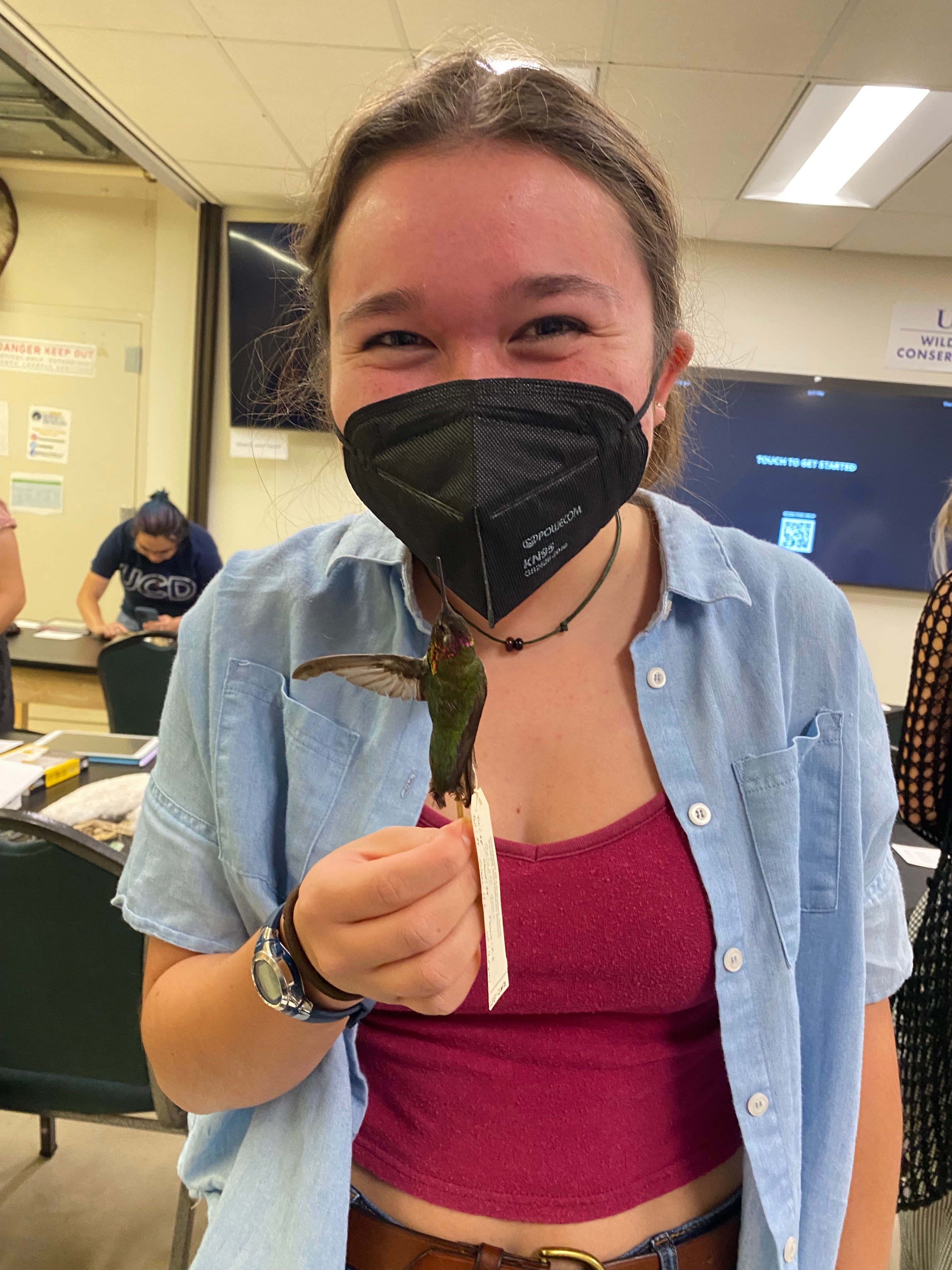
Birds, birds everywhere
At 6 p.m., I biked home in the dark, my headphones blasting bird calls. I can still hear the classic documentary-like voice saying “olive-sided flycatcher.” I named the voice Wallace.
I ate dinner while scrolling through the pictures I took from class each day. I woke each morning to black phoebes calling by my window. This course had completely consumed my life.
Now when I walk anywhere, I hear birds, I see them, and I know them.
It was a mixture of annoying and exciting –– I couldn’t walk on campus without hearing a bird. Studying in the quad would always be interrupted with thoughts like, “Another scrub-jay,” and, “Yeah that’s definitely a white-crowned sparrow.” My brain was crammed with so many calls, Latin family names, ESA listings, habitats, and ecological facts.
Smith said his highlight is seeing how much his students have learned.
“Many students feel overwhelmed and nervous following the first lab, but just a few weeks later, they have built the skills needed to feel confident,” he said. “Once silent lab sections become louder as students get to know each other, they learn so much over such a short period of time.”
Outside the classroom
I joined the Yolo Audubon Society and the UC Davis Birdwatching Club to go on the required weekend birding field trips. This was my real introduction to the birding community. The birders I met on these trips bordered on obsession. With every minute I spent adjusting my binoculars toward the direction of their pointed fingers, I felt my infatuation seep in deeper.
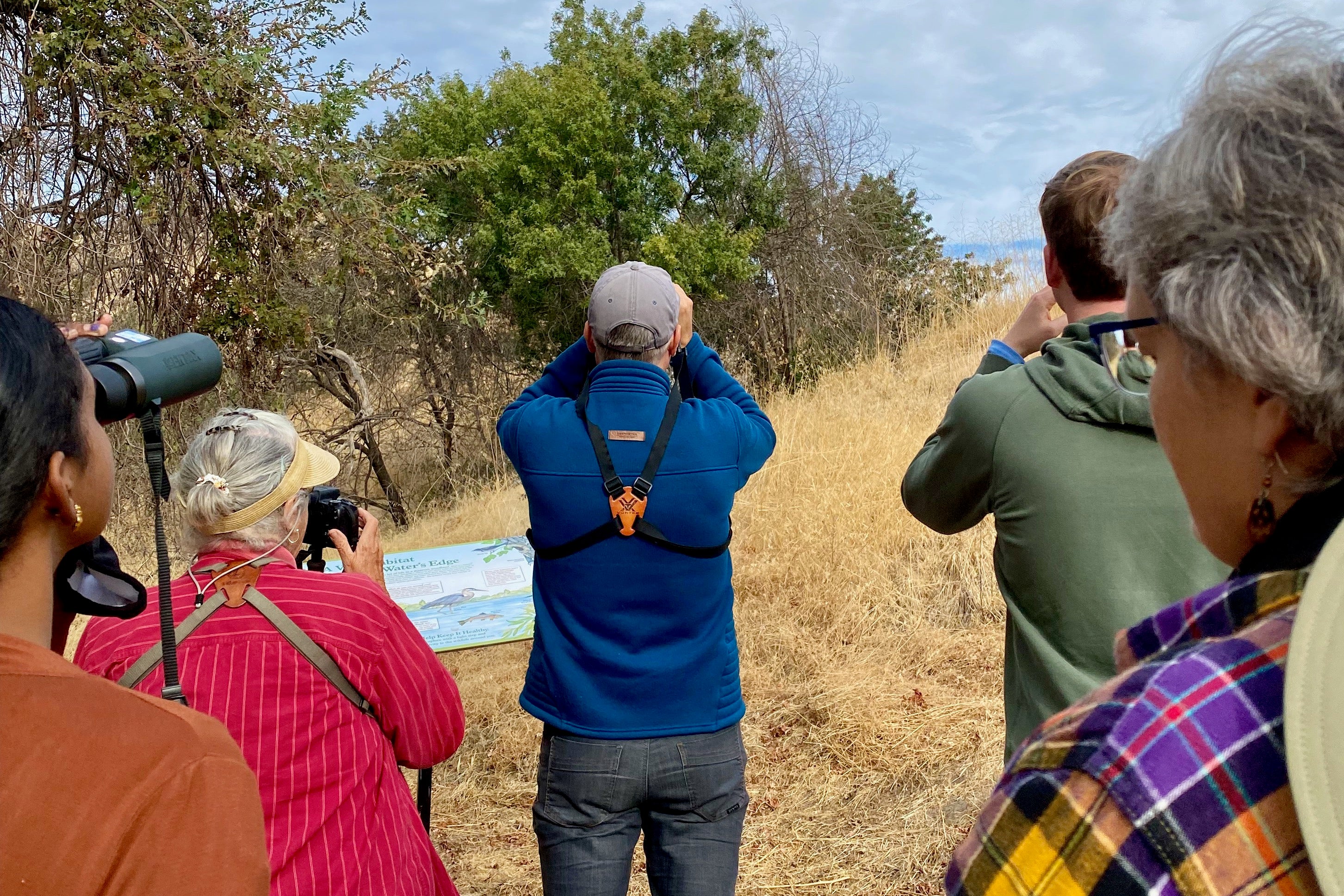
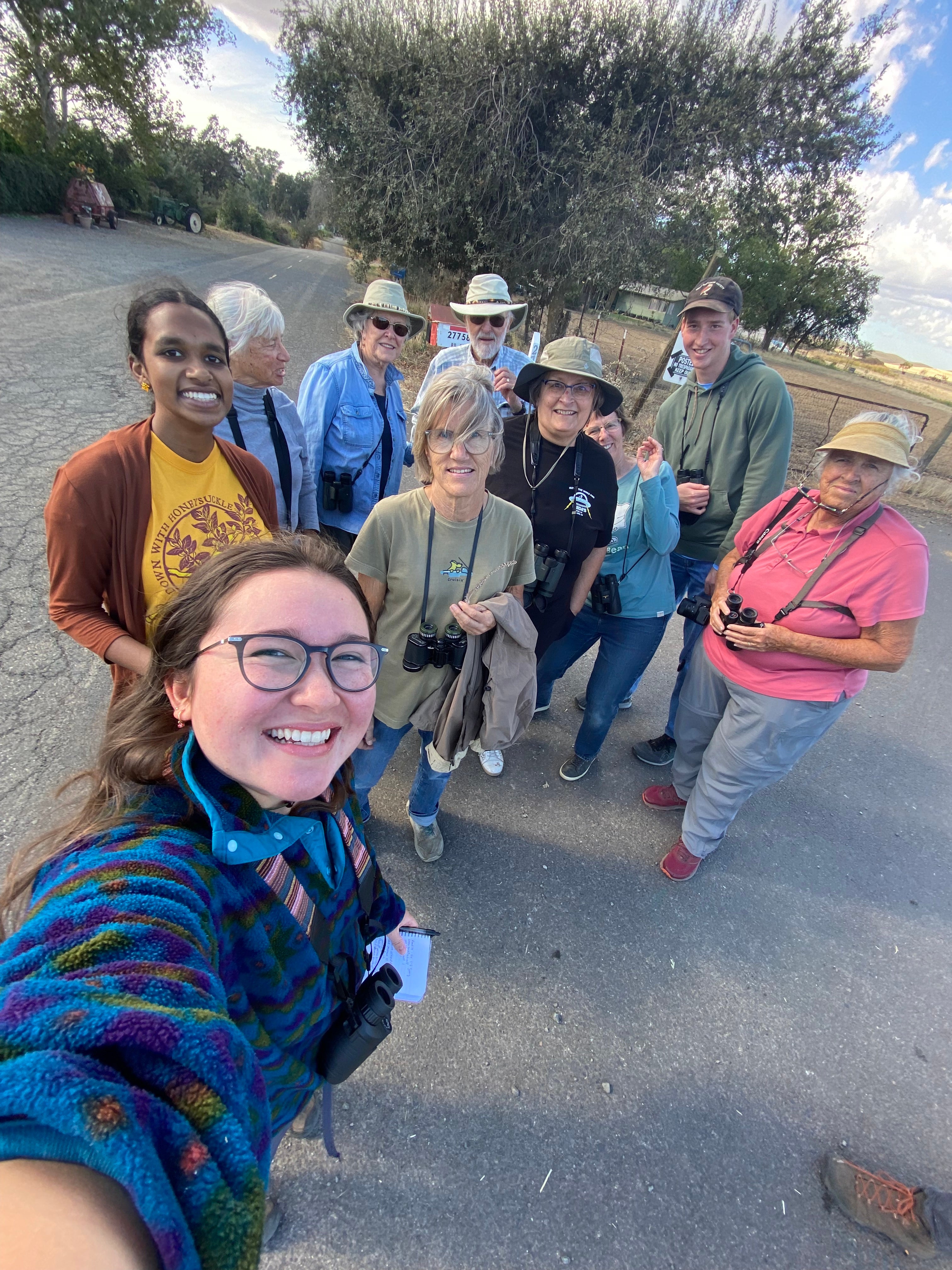
One Yolo Audubon trip leader, Bart Wickel, told me that he’s waited for hours at the Solano-Yolo county border for one bird to fly over to the Yolo side, just so he could record it on eBird, or as I call it, “Birder Social Media.” Bart has even driven across states to get a vision of rare birds sighted the day before. Zane Pickus, a UC Davis first year student, has been birding since he was in middle school and knew everything: every bird, every call, every fun fact down to the exact year that a rare bird had been seen last. Their passion was infectious.
A deeper understanding
At the end of Fall quarter, I walked out of the final exam to the shrill, croaking whine of a California scrub-jay. I laughed. I realized that in 10 weeks, I had gone from not even knowing this persistent bird call, to confidently knowing 300 birds and more than 100 calls.
Now when I walk anywhere, I hear birds, I see them, and I know them. I find myself birding alone, bringing my binoculars on backpacking trips (much to the annoyance of my friends), getting a little too excited to increase my eBird list, almost swerving on the highway when I get distracted by a cool hawk, and requesting scientifically accurate downy woodpecker earrings for Christmas.
I walk without headphones now, and I’m flooded with a deeper understanding of my surroundings and the vast diversity of life all around me. It’s magical.
Malia Reiss is a science news intern with UC Davis Strategic Communications. She studies environmental science and management at UC Davis.
